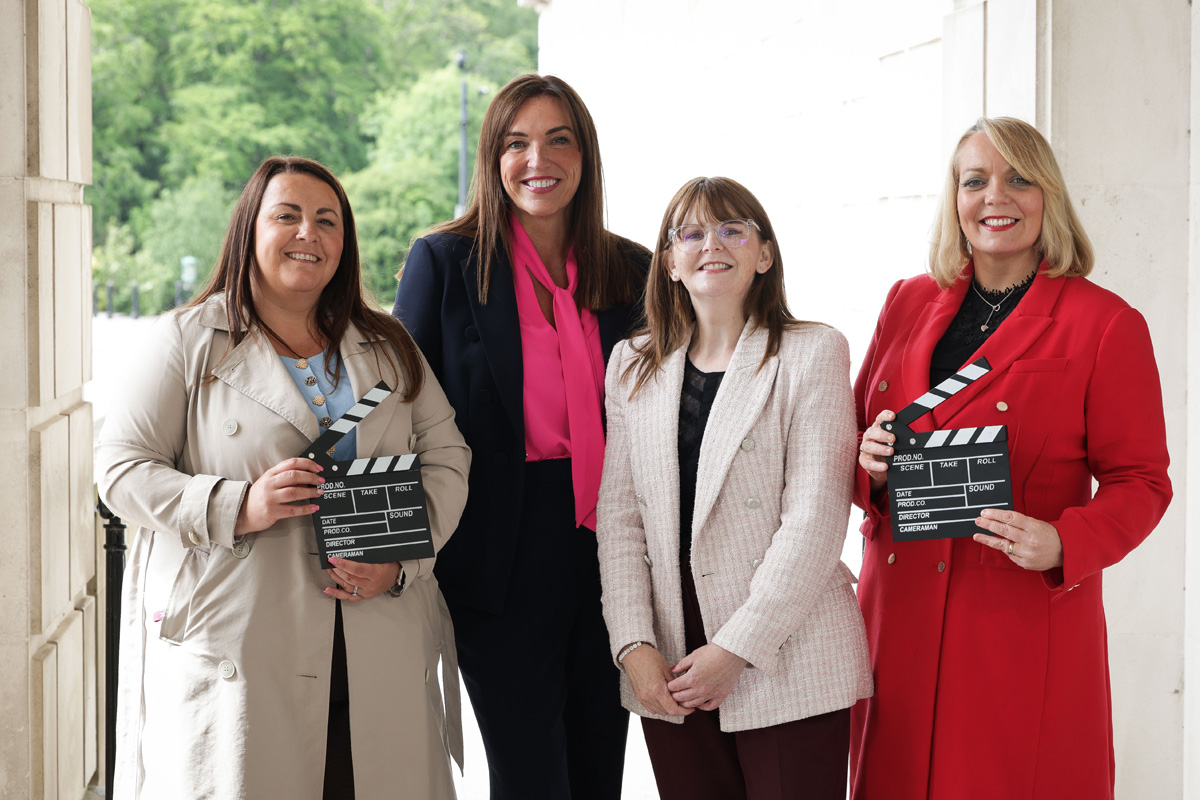A New Year

In this article, Heather makes some suggestions for where she sees policy focus should be in 2024.
A new year – and as we now know a General Election year brings new hopes and fresh challenges in any sector. For the education sector it’s multi-faceted as we constantly strive to improve the qualifications on offer but what are the new qualifications and skills that are needed in a fast moving world. Additionally the sector supports employers in driving up productivity, improving the recruitment pipeline and most importantly retraining in response to evolution within the workplace.
So here are my musings on the challenges we need to look at – where we could start to look to address them – and I’d be really interested in others thoughts.
Why does adult numeracy and literacy levels remain stubbornly low
One of my first actions on joining Open Awards ten years ago was to give evidence to the parliamentary select committee on why adult numeracy and literacy levels remained stubbornly low and the latest research by the Learning and Work Institute shows that little has changed. It’s clearly not enough to offer free courses – we need additional and innovative incentivisation. Clearly, people gain employment and manage lives without a formal qualification(s) but how much more could they achieve if we could address this.
With apologies to my already overworked school colleagues, is there an opportunity here for family/carer learning – is this not the most timely approach to encourage parents/carers/grandparents to learn with their children? Equally, how do we incentivise employers to encourage their workforce to engage with and unlock the opportunities available? Is this an area where the levy underspend could be usefully allocated I wonder.
Reform of offender education
Linked to this should be the reform of offender education with new contracts due to issued this year. Levels of numeracy and literacy remain pitifully low within this cohort with high instances of dyslexia and ADHD where it’s diagnosed. The last data published by the Ministry of Justice suggested 57% of adults in prison had a reading age of 11 or below. High-quality targeted education is a critical key to successful rehabilitation giving hope to thousands of offenders and ex-offenders.
This area desperately needs additional funding so that well-trained staff can maintain education within prisons and importantly ‘through the gate’. We need a transitionary system where offenders meet their trainers whilst serving their sentences and maintain that contact upon release, maybe even as part of their license requirements. Prisoners with short sentences or community-based sentences don’t currently have the offer of education and yet it could prove vital in enabling them to gain meaningful employment and improve their self-worth.
Functional Skills Mathematics Level 2
All this talk of numeracy has to bring me to Functional Skills Mathematics Level 2. Clearly the Level 2 needs to be delineated from Level 1 and more challenging but I feel at the moment the difference between the levels is too great. We know that pass rates continue to be low at Level 2 despite the best work of providers and Awarding Organisations and is a significant limiting factor for apprentices completing their full apprenticeship.
Ofqual are currently looking at how papers from each AO are performing but it would be useful to ask them to expand that to consider if the Level two performance expectations are set at the right level. If that remains the case or no such review is forthcoming then we need to look, as a sector how we better support learners/apprentices. Is there perhaps an opportunity for a collaborative approach from both Ofqual and Ofsted to unpick the barriers to achievement?
Maths to 18 and the Advanced British Standard
Let’s not leave numeracy without discussing the plans for young people to study Maths until they’re 18 and potentially included within the Advanced British Standard. Firstly, I meet so many young people for whom the GCSE Maths resit requirement is destroying their self-esteem and certainly unlikely to engender a wish to return to learning at a later stage in their lives. Whilst the reasoning behind it is laudable there are other options available (such as Functional Skills) that could provide solutions that are more appropriate for individual learners.
Is it really Pythagoras and complicated long division that people need or should we be more focused on Financial Literacy, unless of course there is a passion or requirement for Maths. Surely we could use the time to educate young people on interest rates, mortgages, credit agreements, student loan repayments and the financial issues that some of us still struggle with as adults.
Apprenticeships continue to move forward at pace
Apprenticeships continue to move forward at pace and last year saw a positive development in terms of parity with UCAS hosting vacancies within their career search. The market continues to fluctuate with providers and End-point Assessment Organisations joining and exiting the market. Ofqual have made determined strides to reach out and work with EPAOs and we look forward to seeing some useful research and guidance reports from them during 2024. Does this give us the chance to look at certain areas that could be improved?
Firstly, wouldn’t it be wonderful if the levy was ringfenced solely for expenditure and growth of apprenticeships, providing additional support for apprentices. Could it also be used to improve the progression of young apprentices into Level 3 apprenticeships providing vital skills and resources into SMEs whilst giving young people valuable work experience and vocational qualifications.
The growth of apprenticeships for young adults with a learning disability who require additional support but could progress, perhaps from a Supported Internship is another area I would like to see developed. I can’t of course leave Apprenticeships without echoing the plea from employers for a much needed Level 2 Business Administration standard.
Funding continues to be a factor
Funding continues to be a factor and I fear we will continue to see valuable training providers fold during 2024 and continued pressure on college and school funding reducing the amount of pastoral support they can provide. Continuing to address the ongoing mental health crisis must be a priority, not only for students and apprentices but staff across the sector. In this respect, I cannot recommend the new materials produced by the Education and Training Foundation enough. The consultation for the proposed Advanced British Standard landed just before Christmas and needs to be high on everyone’s 2024 priorities.
Finally, in what promises to be an acrimonious year let us all remember we’re stronger together and continued collaboration is crucial to moving forward – and #BeKind – to yourself and others.
By Heather Akehurst OBE, Chief Executive of Open Awards
FE News on the go
Welcome to FE News on the go, the podcast that delivers exclusive articles from the world of further education straight to your ears.
We are experimenting with Artificial Intelligence to make our exclusive articles even more accessible while also automating the process for our team of project managers.
In each episode, our thought leaders and sector influencers will delve into the most pressing issues facing the FE.











Responses